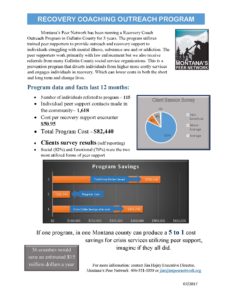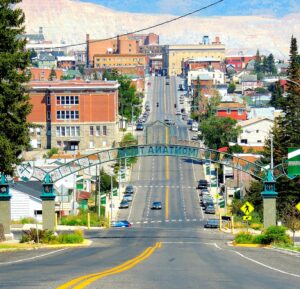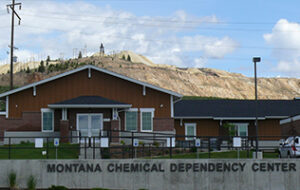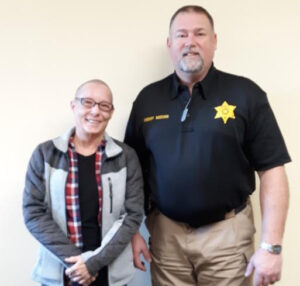The Peer Support Demonstration Projects serve as pilot programs to demonstrate the effectiveness of peer support in various settings. Utilizing the 8 Dimensions of Wellness, 10 Guiding Principles of Recovery, and the Four Dimensions of Recovery, Peer Support Specialists work with individuals to support their recovery and demonstrate how that support is beneficial to the communities. The demonstration projects are meant to be short term as well as mission and data driven. When the project concludes we strive to turn the project over to a local entity for its continuation.
This program is a missing link that is vital to our community (and many others) because it is Peers in recovery reaching out to other Peers who are struggling and need a ‘friend’ and a ‘coach’ to be with them to help guide them and give them hope along the way. They are able to make a difference in a way that a therapist or social worker isn’t able to, because they have a lived experience and can say, ‘I was where you are! There is hope!'
-Testimonial from the mother of a Recovery Coach Client
Southwest Montana 2022-2023
The overall purpose of the Program for Pregnant and Parenting People with Substance Use Disorder and Opioid Use Disorder was to reduce opioid-related mortality in Southwest Montana. The project was coordinated through the Five Peaks Coalition, a community of members and providers of prevention, treatment, and recovery services. The project was funded by the Rural Community Opioid Response Program (RCORP) whose purpose is to expand access to treatment and recovery services to rural residents who are at the highest risk. The Peer Support Specialist conducted outreach in Silver Bow, Deer Lodge, Beaverhead, Madison, and Jefferson Counties. A recovery Community was developed through support services that included a traveling support group and 1 on 1 peer support. Educating the public through Advocacy and awareness with an anti-stigma campaign, community listening sessions, and having a presence by attending local events. Educating healthcare providers and developing community relationships was a critical aspect of advocacy and program sustainability. Harm reduction education and the benefits that come from having Peer Support Specialists happened by developing a common language brochure, health care provider, and social organizations presentations, and Quarterly webinars.
This program is supported by the Health Resources and Services Administration (HRSA) of the U.S. Department of Health and Human Services (HHS). The contents are those of the author(s) and do not necessarily represent the official views of, nor an endorsement, by HRSA, HHS, or the U.S. Government. For more information, please visit HRSA.gov.
Gallatin County Program
2014-2017
The Gallatin County Program was designed to divert individuals from high cost intensive or repetitive crisis services by providing two Peer Support Specialists available to all citizens of Gallatin County and engage those individuals in recovery. The Peer Support Specialists fostered partnerships with local behavioral health organizations and worked collaboratively to better address the needs of individuals in the community. Community-based peer recovery groups were created in Belgrade and Bozeman.
Data from the Gallatin County Program showed:
- 82% of clients reported their peer support session was "very beneficial & supportive"
- 82% of clients identified "Social" support as type of peer support provided
- 5 to 1 cost savings for crisis services
 This project was funded by the Addictive and Mental Disorder Division, DPHHS MT 2014-2015 and by Gallatin County 2015-2017. Additionally, MPN was able to secure a second contract to provide life skill building groups inside the Gallatin County Detention Center to inmates in recovery in 2016-2017.
This project was funded by the Addictive and Mental Disorder Division, DPHHS MT 2014-2015 and by Gallatin County 2015-2017. Additionally, MPN was able to secure a second contract to provide life skill building groups inside the Gallatin County Detention Center to inmates in recovery in 2016-2017.
Download the white paper report of this project.
Butte Program
2018
 The Peer Support Specialists in the Butte Program worked throughout the community supporting individuals with mental health, substance use, and addiction struggles. By reducing or removing intake barriers, fees, and stigma we were able to create partnerships with community organizations to better serve individuals. A weekly community-based peer support recovery group was formed and the project included outreach to Montana State Hospital in Warm Springs. The Butte Program was funded by the Montana Mental Health Trust and at the end of 2018 the Behavioral Health Alliance of Montana took over the project.
The Peer Support Specialists in the Butte Program worked throughout the community supporting individuals with mental health, substance use, and addiction struggles. By reducing or removing intake barriers, fees, and stigma we were able to create partnerships with community organizations to better serve individuals. A weekly community-based peer support recovery group was formed and the project included outreach to Montana State Hospital in Warm Springs. The Butte Program was funded by the Montana Mental Health Trust and at the end of 2018 the Behavioral Health Alliance of Montana took over the project.
Data from the Butte Program showed:
- 29% of clients reported they "didn't know" or "nothing" is what they would have done if the peer supporter was not available that day
- 87% of clients identified "Social" support as type of peer support provided
- 84% of clients reported their peer support session was "very beneficial & supportive"
MCDC Program
2018-2020
 The Montana Chemical Dependency Center (MCDC) Program grew out of the Butte Program and started in early 2018 and is the first project to offer peer support in an inpatient setting. Group sessions focus on recovery concepts from a peer approach and one-on-one meetings focus on topics specific to that person in recovery. Topics often include housing, basic needs, sober living, support groups and connecting peers to their communities. The Peer Support Specialists support individuals as they transition back into their communities and continue to build relationships after they leave the inpatient setting. This project has shown that a peer to peer presence is needed and successful in an inpatient setting.
The Montana Chemical Dependency Center (MCDC) Program grew out of the Butte Program and started in early 2018 and is the first project to offer peer support in an inpatient setting. Group sessions focus on recovery concepts from a peer approach and one-on-one meetings focus on topics specific to that person in recovery. Topics often include housing, basic needs, sober living, support groups and connecting peers to their communities. The Peer Support Specialists support individuals as they transition back into their communities and continue to build relationships after they leave the inpatient setting. This project has shown that a peer to peer presence is needed and successful in an inpatient setting.
Data from the MCDC Program show:
- 81% of clients reported their peer support session was “very beneficial and supportive”
- 74% of clients reported that they were satisfied or very satisfied with the quality of their lives.
Townsend Program
2019
 Townsend's Program was spearheaded by Melinda Holom, Certified Behavior Health Peer Support Specialist, in early 2019 and was funded by the Montana Mental Health Trust. A successful weekly community-base recovery group was formed. In November 2019 the Broadwater county commission agreed to hire the peer support specialist in the Sheriffs office and continue the project into the future.
Townsend's Program was spearheaded by Melinda Holom, Certified Behavior Health Peer Support Specialist, in early 2019 and was funded by the Montana Mental Health Trust. A successful weekly community-base recovery group was formed. In November 2019 the Broadwater county commission agreed to hire the peer support specialist in the Sheriffs office and continue the project into the future.
Data from the Townsend Program showed:
- 30% of clients reported they “didn’t know” what they would have done if the peer supporter was not available that day
- 90% reported “Emotional” support was the type of peer support provided
- 41% of clients reported their peer support session was “very beneficial & supportive”
- 32% of clients reported the peer support session was “just about right”
Leading the Way with Peer Support
MPN's Recovery Coaching Program has been featured in webinars, national articles, statewide TV and more.
- National article on project Nat Con Mag 2016
- Montana-wide "Face the State" TV segment, Sept. 2017
- Two national webinars: Peers in Recovery Support Roles
- Presented at the North Dakota Recovery Conference 2014
- Presented Alternatives Conference 2015, Memphis, TN
- Presented at Peerpocolypse 2015 Seaside, Oregon
- Mental Health Policy Summit January 2016, Helena, MT
- Butte/Silver-Bow Local Advisory Council April 2017
Start a Peer Support Demonstration Program in Your Community!
Interested in starting a Peer Support Program in your community?
We can bring the program to any community through consulting services or a full program. To schedule and information session or discuss how Peer Support can be implemented in your community, contact Jim.

